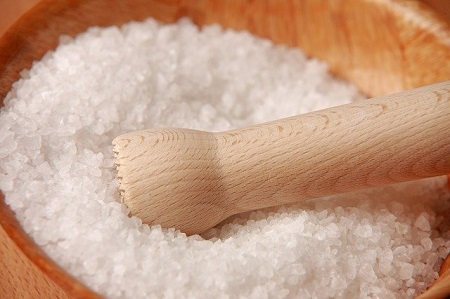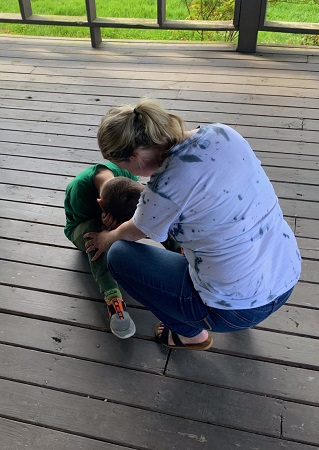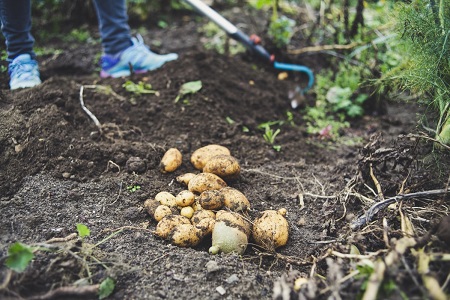Butter Up
 When we prepare special meals or snacks, we often butter up our food to make it taste better. What would holiday meals be like without butter for the turkey, rolls, and desserts? Who wants to eat popcorn without butter during a movie? Most people find butter a pleasing addition.
When we prepare special meals or snacks, we often butter up our food to make it taste better. What would holiday meals be like without butter for the turkey, rolls, and desserts? Who wants to eat popcorn without butter during a movie? Most people find butter a pleasing addition.
Not my husband. When he was three years old, his grandmother used a mold to create a beautiful dish of butter. When he saw it on the kitchen table, he thought it was ice cream. Like most little boys would do, he found a spoon and took a bite. He still hates butter.
To butter up means to flatter or be extra nice to someone.
We usually do this before we:
- Ask for a favor
- Give bad news
This expression applies to most relationships.
Children butter up their parents before they ask for:
- Money
- A special toy or gift
- Use of the car
Or, children may have to tell parents of :
- Trouble they caused
- Bad grades
- Chores they failed to do
Students also butter up their teachers, hoping for a better grade. Employees butter up their bosses before requesting a raise.
If we do our best, we don’t have to butter up anyone.
Instead of being nice in order to get what we want, why not be nice all the time? Rather than put off bad news, why not be honest from the start? We never need to butter up if we stay on the up and up and do what we need to do.
“You know we never used flattery, nor did we put on a mask to cover up greed—God is our witness” (1 Thessalonians 2:5 NIV).
Thanks to Regina Graham for the suggestion.
Do you have an expression you want explained or a thought about this one? If so, please comment below.
Subscribe to receive my weekly posts by email and receive a free copy of “Words of Hope for Days that Hurt.”
If you enjoyed this post, please share it with your friends.
 Old wagons, carts, and carriages remind us that the squeaky wheel gets the oil (or grease). Their rides equal hours of fun — if the wheels work well.
Old wagons, carts, and carriages remind us that the squeaky wheel gets the oil (or grease). Their rides equal hours of fun — if the wheels work well. When we serve soup, we want no bones about it. We may cook bones in our soup, but we take them out when we eat. Swallowed bones often result in a visit to the hospital.
When we serve soup, we want no bones about it. We may cook bones in our soup, but we take them out when we eat. Swallowed bones often result in a visit to the hospital. Years ago, people treated many medical emergencies at home. One common remedy was to pour or rub salt in a wound. That solution often caused more pain than the original problem.
Years ago, people treated many medical emergencies at home. One common remedy was to pour or rub salt in a wound. That solution often caused more pain than the original problem. My dog Dashaway was my favorite pet. She would stick like glue anytime I went outside.
My dog Dashaway was my favorite pet. She would stick like glue anytime I went outside. “Tell me the truth. You will feel better if you do. Confession is good for the soul.”
“Tell me the truth. You will feel better if you do. Confession is good for the soul.” When gardeners dig potatoes, they usually look for lots of large ones. Small potatoes often get thrown away.
When gardeners dig potatoes, they usually look for lots of large ones. Small potatoes often get thrown away. It makes no sense to bite the hand that feeds you. Some animals who
It makes no sense to bite the hand that feeds you. Some animals who  Like several animals (and a few people) dogs can be dangerous when suddenly wakened. Therefore, we usually let sleeping dogs lie. We leave them alone to sleep in peace.
Like several animals (and a few people) dogs can be dangerous when suddenly wakened. Therefore, we usually let sleeping dogs lie. We leave them alone to sleep in peace. Recently a cousin wrote, “Our roots run deep and are closely intertwined.” She meant our family has a long and strong history of close relationships. We may not see one another often, but our ties remain. We can depend on mutual love and support.
Recently a cousin wrote, “Our roots run deep and are closely intertwined.” She meant our family has a long and strong history of close relationships. We may not see one another often, but our ties remain. We can depend on mutual love and support.